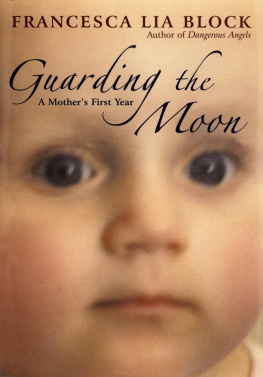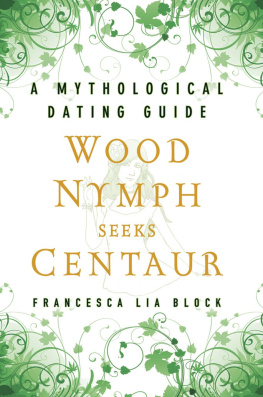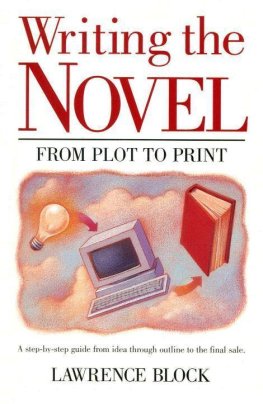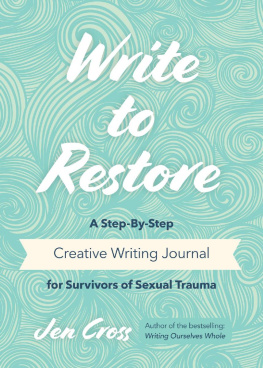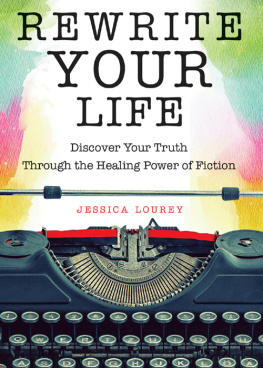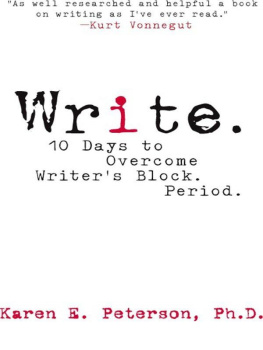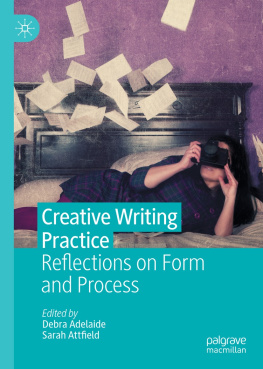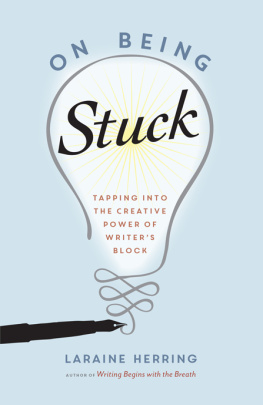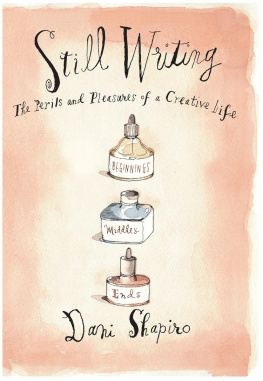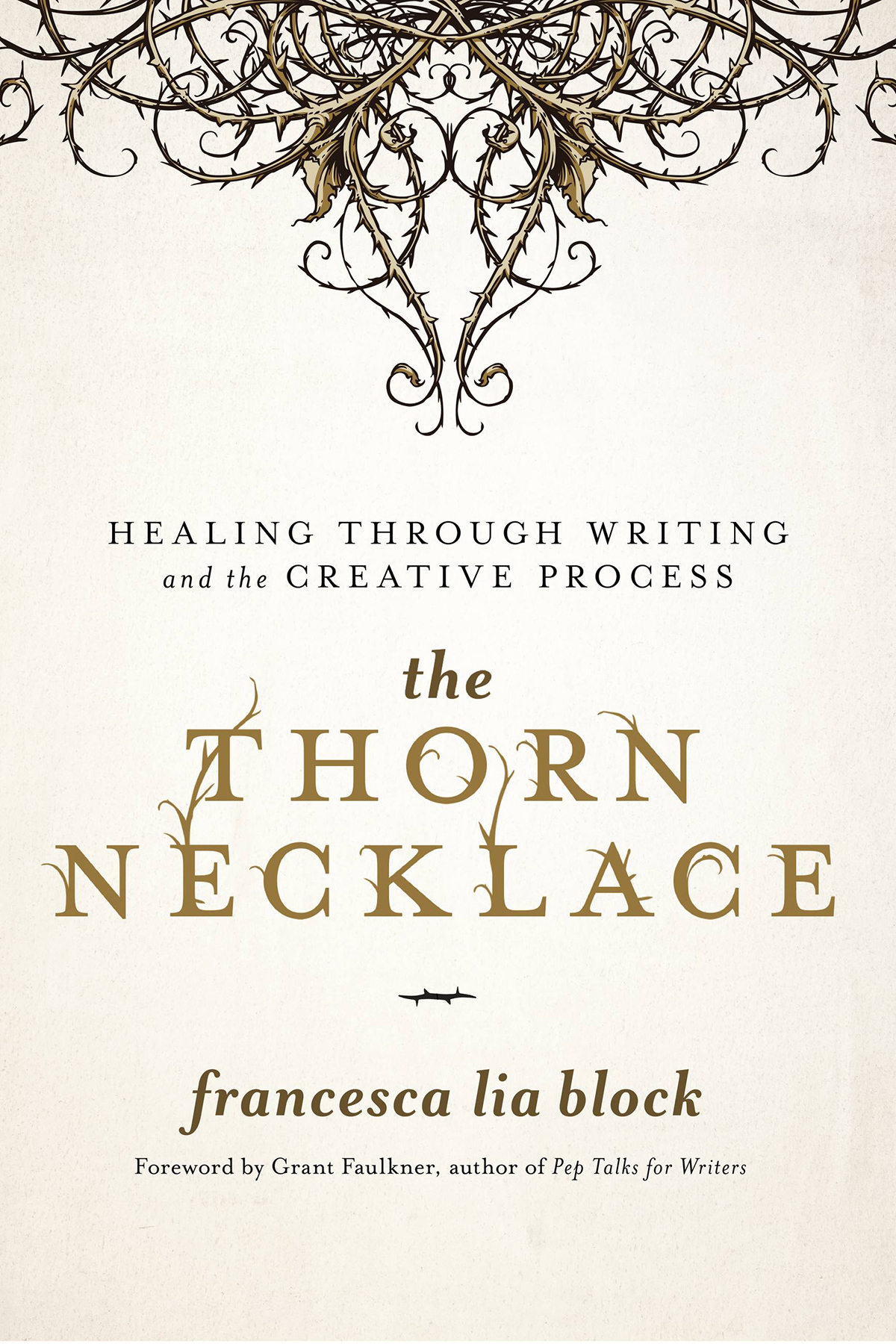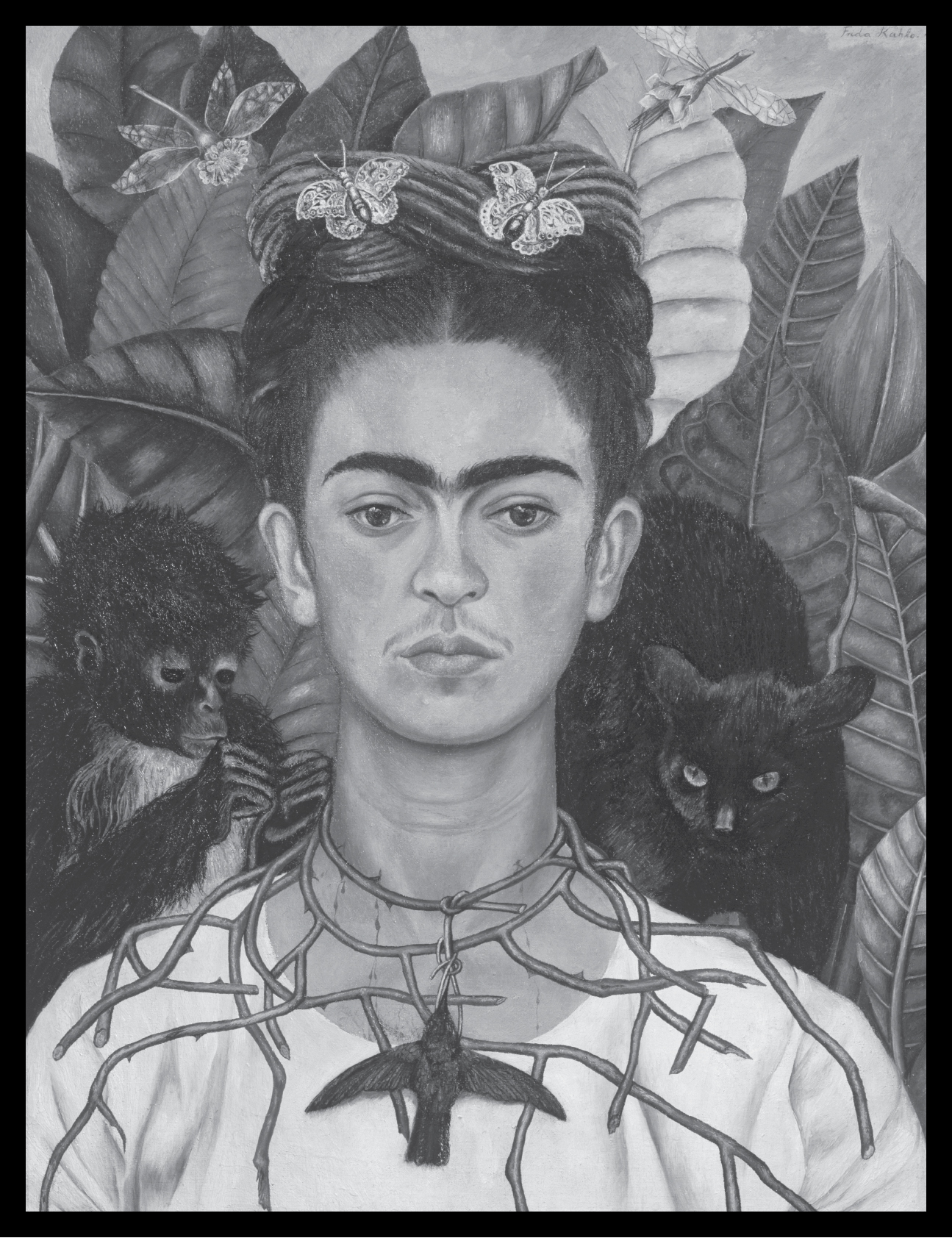Grant Faulkner
I AM A WRITER .
Theyre just four simple words. Yet many of us have difficulty saying them, no matter where we are on our creative journeys.
I know I did. In my early days as a writer, when people asked me what I did, I hesitated to tell them because I knew Id have to endure an inevitable cross-examination. People asked me how many books Id published. They asked me how I planned to make a living writing. Or they just said, Oh, and kept their thoughts to themselves. Few applauded the fact that I was devoting my life to my creativity.
Every writer has experienced such moments.
When these inevitable moments came for me, I would try to dodge my way out. I squirmed. I mumbled. I fled.
Writing was my religion, my foremost purpose in life, my consolation. But as the years passed and I didnt have the successes that others deemed the qualifications of a real writer, I went into hiding. I wrote, but I lost the strength of my words. I wrote, but with a doubt that needled each sentence, a lack of self-confidence that clouded my imagination. My boldness evaporated. My verve started to become a distant memory. I lost my truth.
The path to holding onto your truth is charted in this book. If I had read The Thorn Necklace then, maybe I would have struggled less. I know I would have written more, and the more I write, the more satisfying my life becomes.
But somewhere within me, without even knowing it, I must have believed that other people were real writers. I understand this syndrome well now. As executive director of National Novel Writing Month, I talk to thousands of people each year about their creative lives, and I hear too many people diminish themselves as writers. They arent really writers, they say, because they arent pedigreed with MFAs, or they havent published a book, or they dont go to cocktail parties with other writers in Brooklyn. They tell me theyre not creative types, or that they dont have time to write in a busy life, or that theyve been ridiculed for having the audacity to think they could write a novel.
But when you tell yourself such things, a gate falls down between your self and your creativity, and once that gate falls down, it can be a heavy thing to lift. It can be so heavy that you might give up.
If you dont give up, if you keep that gate lifted high, your life becomes enriched in otherwise unimaginable ways. This is the beautiful lesson of Francesca Lia Blocks captivating study of the writing life, the book you are holding in your hands.
When we turn away from our creative souls, Francesca presages, we unwittingly harm ourselves. When we dont lay claim to our creative impulse to share what we believe to be true about ourselves and the world around us, an agony festers from self-diminishment, and another thorn is added to the daily existence that encircles us.
You tell yourself that your story isnt interesting enough to be written on paper. You tell yourself that other people will laugh at you. You tell yourself that you should be an adult and fix that squeaky front door or paint your living room or at least wash the dishes. You should be practical, filling your life with all kinds of shoulds.
Writing a story can feel like a trivial entertainment, a whimsical activity that shouldnt have a significant place in a busy adults life. But thats forgetting one thing. When you minimize your expression, you minimize who you are. When you tell yourself that your story isnt important, you make it so.
The Thorn Necklace reminds me that we are born to be creators, so we need to approach each day with a creative mindset. When I had children, I loved watching the kids play at preschool. They created out of impulse, without thought, without any notion of whether the final product would be good or bad. Put a canvas in front of them and lay out some finger paints, and they would plunge in with gusto, not worrying about any mess because they reveled in the wonders of the colors. They painted with unfettered glee, unconcerned by anyones opinion because they were so immersed in the story they were telling.
As I watched them, it was hard to think that they might not be equally as zealous and wildly creative as adults. I worried that they would experience a creative scar. Perhaps someone would tell them they werent artistic. Perhaps the more practical matters of life would tamp down their imaginative spark.
Ive learned that you might stuff your story down to the bottom of your to-do list or try to abandon it on the side of a highway, but your story wont go away. Your story needs to be told. As Francesca assures us, if you listen, its always whispering within you, if not crying for attention. It wants to be brought to life. It wants to breathe. It wants you to put your hands in the paints of your words and color the canvas.
We are storytellers because stories are the vehicles we navigate the world with. Writing a story is many things: a quest, a prayer, a hunger, a tantrum, a revolt, an escape that ironically leads you back to yourself. We need our stories because our stories connect us to other people. We need our stories because our stories connect us to ourselves. When you claim your creativity, when you say, I am a writer, it becomes a vital part of your identity. Youre not only braver on the page, youre also braver in the rest of your life because youre a change agent, a builder of new worlds.


